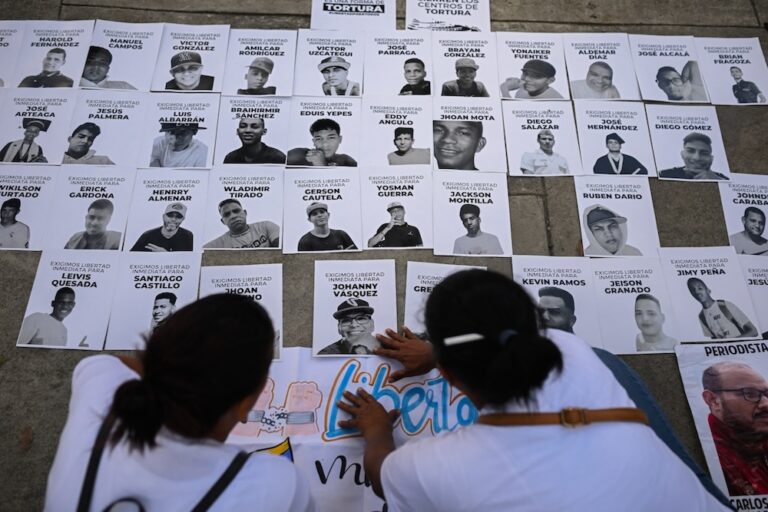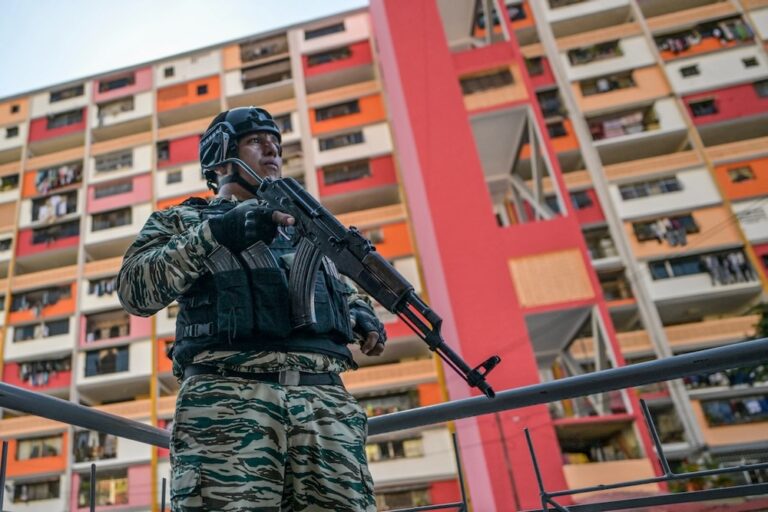The Caracas mayor and the Carabobo state governor committed to the principles of press freedom emanating from the Declaration, which has also been signed by 59 Western Hemisphere heads of state.
(IAPA/IFEX) – Miami, July 1, 2011 – With an attendance of more than 600 university students, the Inter American Press Association’s Chapultepec Ambassadors program wound up in Valencia, Venezuela, yesterday a series of activities that included the signing of the Declaration of Chapultepec by prominent officials of the South American nation.
On Wednesday Caracas City Mayor Antonio Ledezma and yesterday Carabobo State Governor Fernando Salas Feo committed to the principles of press freedom emanating from that Declaration, which has also been signed by 59 Western Hemisphere heads of state.
The IAPA held two days of activities in conjunction with the newspaper “El Nacional” and its publisher, Miguel Henrique Otero, and the authorities of the University of Carabobo. Otero said that the event was “a resounding success, demonstrating the support of many people in public life in this country, and especially all the students who show unrestricted support for the principles of freedom of the press and of expression.”
At an “El Nacional auditorium”, before more than 200 local figures and journalists, Mayor Ledezma added his signature on the Declaration of Chapultepec, declaring, “Freedom of expression is not the gift of one in government”. He said the fact that the Venezuelan president had not signed the Declaration showed that (from a position of power) prior censorship was being applied to all reports being disseminated in the country.
Ledezma was introduced by Otero, who spoke of the history of the Declaration and its long list of presidential endorsements. Otero said that “this is a document that seeks to sustain democracy, the right to exercise it and for the people to be well-informed.”
Attorney Jorge Santistevan, former Ombudsman of Peru, who headed the program’s activities in his role as “Chapultepec ambassador,” stated, “Access to information should imply that the people and the press can exercise their right and be able to access and report on documents of the public entities.”
In Valencia the IAPA held a forum with a large audience at the campus of the University of Carabobo, in which students from the Arturo Michelena University also took part.
Santistevan underscored how powerful the Declaration is regarding press freedom and the close relationship between Article 19 of the Universal Declaration of Human Rights and Article 13 of the American Convention on Human Rights. He stressed the concordance of the documents concerning keeping news sources secret and banning prior censorship.
IAPA Executive Director Julio E. Muñoz gave an historical account of the Declaration of Chapultepec and the organization’s goal for defending and promoting freedom of expression.
The forum concluded with emotional remarks by students and the signing of the Declaration, with Otero making reference to recent assaults upon freedom of the press, complaining that there had been a new attack on the independent television channel Globovisión. The station has been subjected to a new administrative lawsuit, under which an attempt is being made to penalize it for the news coverage it made of an El Rodeo Prison riot.
Carabobo State Governor Salas Feo signed the Declaration of Chapultepec in a ceremony held at his official residence in the city of Valencia, with the participation of Gilberto Urdaneta, editor of the newspaper “El Regional del Zulia” and regional vice chairman for Venezuela of the IAPA’s Committee on Freedom of the Press and Information.
In his closing remarks the governor said that news media and journalists are essential tools for good governance.


